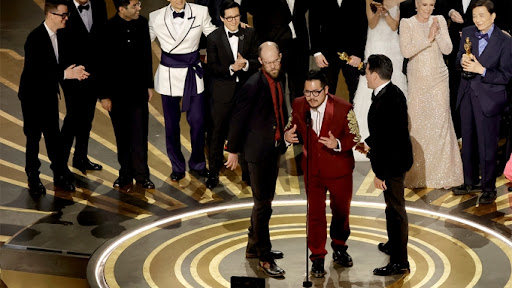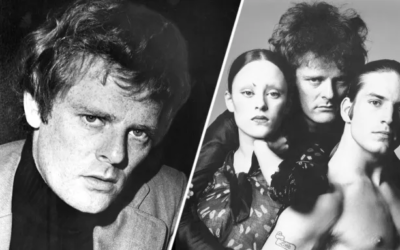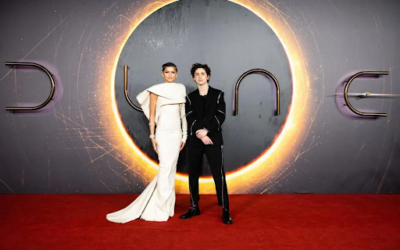Source: Variety
In any other universe, the idea of a film like Daniel Kwan and Daniel Scheinert’s “Everything Everywhere All at Once” being named Best Picture by the Academy Awards, or even winning any other prestigious award of such a caliber, would be almost unthinkable. For one thing, the film first premiered in March of last year, just a few weeks after the previous Academy Awards ceremony and far from the late-fall/early-winter period in which most Oscar hopefuls are released to theaters. Second, the film, an absurdist comedy-drama that hops from one bizarre universe to another within its high-concept narrative, falls into the genres that tend to be dismissed by most Academy voters, many of which have historically demonstrated a preference for historical dramas and other forms of more “serious” cinema. All things considered, a film that features characters who literally have hot dogs for fingers should be the last thing that most would consider to be deserving of a major award, let alone the highest honor that can be given for a feature film. However, one of the key ideas behind “Everything Everywhere All at Once” is how there’s an infinite number of universes where anything, no matter how improbable, is possible, making it all the more appropriate that the Daniels’ film, in spite of all the odds, was able to somehow come out on top.
By the end of the 95th Academy Awards ceremony on Sunday, March 12th, “Everything Everywhere All at Once”, entering the ceremony with eleven nominations in ten categories, had been given a total of seven awards, more than any other film nominated for the previous year and more than any Best Picture winner since “Slumdog Millionaire” in 2008 (and more than any film since 2013’s “Gravity”). Apart from the aforementioned Best Picture win, Daniel Kwan and Daniel Scheinert won awards for Best Director and Best Original Screenplay, while editor Paul Rogers was honored with the Oscar for Best Film Editing. Then there are its acting wins, which allowed the film to join 1954’s “A Streetcar Named Desire” and 1976’s “Network” to have won three of the four possible acting awards. Those wins were awarded to Michelle Yeoh for Best Actress (making her the first winner of Asian descent in this category, as well as the first person of color to win since Halle Berry – who appropriately presented the award to Yeoh – for 2001’s “Monster Ball”), Ke Huy Quan for Best Supporting Actor, and Jamie Lee Curtis for Best Supporting Actress. It was not a complete sweep for “Everything Everywhere All at Once” though; Stephanie Hsu was also nominated for Best Supporting Actress, and the film failed to pick up wins for Best Costume Design, Best Original Score, and Best Original Song for the tune “This is a Life”, but such losses were nonetheless outnumbered by its wins, so there’s very little for anyone involved in the making of the film to complain about.
Coming in second place behind “Everything Everywhere All at Once” in terms of overall wins was Edward Berger’s German-language epic war drama “All Quiet on the Western Front”. Fitting for a film based on a story that had already been turned into a Best Picture winner (the 1930 cinematic adaptation of the same name was given this honor during the 3rd Academy Awards), Academy voters seemed rather fond of this latest cinematic retelling of Erich Maria Remarque’s 1929 anti-war novel, as the film had received nine nominations prior to the ceremony, trailing only 2000’s “Crouching Tiger, Hidden Dragon” and 2018’s “Roma” in having the most of any non-English language film. Of these nominations, “All Quiet on the Western Front” managed to earn four Academy Awards in total, winning for Best International Feature, Best Original Score, Best Cinematography, and Best Production Design; besides its Best Picture loss to the aforementioned “Everything Everywhere All at Once”, the film has also failed to secure wins for Best Adapted Screenplay, Best Makeup and Hairstyling, Best Visual Effects, and Best Sound. Despite these losses, this is still an impressive achievement for a film made outside the United States, one that shows just how much more welcoming of international cinema it has become over the past few years.
Interestingly enough, the only other film to pick up more than one Academy Award was a film that was not even nominated for Best Picture. That film was Darren Aronofsky’s “The Whale”, which the Academy voted to award with the prizes for Best Makeup and Hairstyling and Best Actor, the latter going to Brendan Fraser for his performance as Charlie in the film. Other than that, all the other winning films were only able to secure a single win by the end of the evening. The award for Best Adapted Screenplay went to the drama “Women Talking” and its writer Sarah Polley (who has also directed the film); Best Animated Feature was given “Guillermo del Toro’s Pinocchio”, making it one of the few films not made by Disney to win the award and the first stop-motion work to do so since 2005’s “Wallace & Gromit: The Curse of the Were-Rabbit”; “Nalvany” was named Best Documentary Feature, while “The Elephant Whisperers” was likewise named Best Documentary Short Subject; Best Live-Action Short Film was awarded to “An Irish Goodbye”, and Best Animated Short Film was handed to “The Boy, the Mole, the Fox, and the Horse”; “Avatar: The Way of Water” and “Top Gun: Maverick”, the two highest-grossing films of the previous year, were honored with Best Visual Effects and Best Sound respectively; “Black Panther: Wakanda Forever” followed in the footsteps of its 2018 predecessor “Black Panther” by achieving a win for Best Costume Design. Lastly, there is Best Original Song, which went to “Naatu Naatu” from “RRR”, making this the first time in which a film from India was honored with an Academy Award.
The only downside to the results of this year’s ceremony is the fact that such films as “The Banshees of Inisherin”, “Elvis”, “The Fabelmans”, “Tar” and “Triangle of Sadness” to go home empty-handed despite receiving several nominations in various different categories. Still, as it’s often said, being nominated is an honor in its own right, and overall, few would argue that a film as unlikely as “Everything Everywhere All at Once” isn’t deserving of being the big winner that it was.




